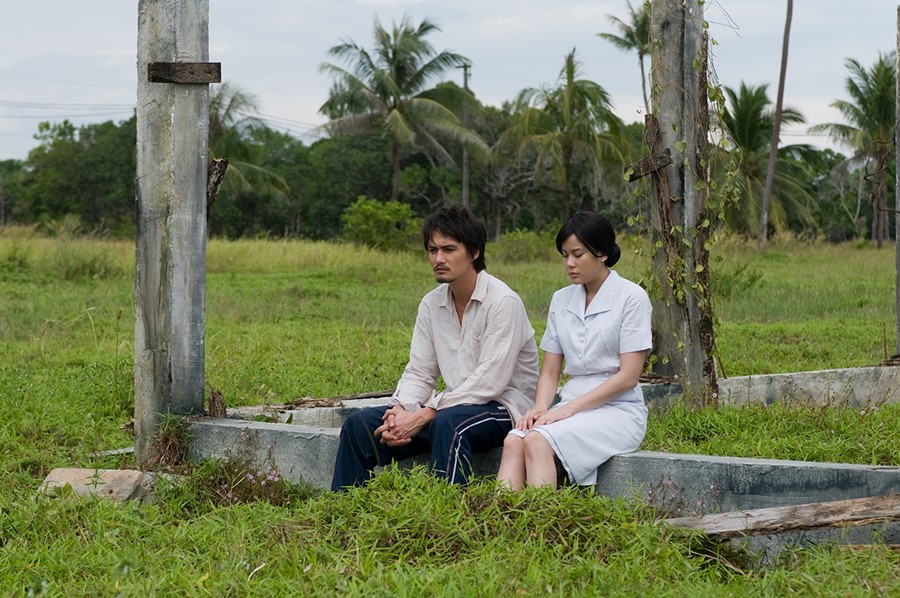Writer and director Aditya Assarat was born in Bangkok and studied film at the University of Southern California. After winning many awards for his short films, he launched Pop Pictures in 2006 to produce his debut feature, Wonderful Town...
Writer and director Aditya Assarat was born in Bangkok and studied film at the University of Southern California. After winning numerous awards for his short films, he launched Pop Pictures in 2006 to produce his debut feature, Wonderful Town, about the rebuilding of a Thai coastal town after the Tsunami.
In his latest feature, the beautifully composed and carefully paced Hi-So, Thai film star Ananda Everingham plays a young man who returns to Thailand after living in the US for several years. Once home, he lands the leading role in a film, and is visited on location in a small coastal town by his American girlfriend, who doesn’t respond well to her new surroundings. Here, Assarat tells us why this project is close to his heart, and what it means to be Hi-So.
What does the term ‘hi-so’ mean in Thailand?
Hi-So comes from High Society, and means the same thing as ‘posh’ in the UK. I think ‘Gangnam-style’ in Korea is also the same thing. Maybe every country has got a word for it.
You talk about a new international ‘tribe’ of people, who are seemingly rootless as Ananda is in Hi-So. What defines them?
A century ago if you were born in Thailand, it meant you spoke Thai, probably never left your country, maybe never even left your town. But nowadays things aren’t so simple. New tribes have sprouted up around the world that are not defined by national borders but by education, taste and opportunity. You can meet someone from a far away country for the first time and find you have a lot in common – you watch the same movies, listen to the same music, wear the same clothes. But then back home in your own country, you're suddenly different from the people who live down the street. At least that's true in Thailand.
"Hi-So comes from High Society, and means the same thing as ‘posh’ in the UK. I think ‘Gangnam-style’ in Korea is also the same thing. Maybe every country's got a word for it"
You've said this film is a very personal project, why so?
I spent over ten years living in the US when I was in my teens and twenties. All the time I was there, I was always the guy from Thailand. Then when I moved back to Thailand, I became the guy from the US. That feeling of being an outsider everywhere was a feeling that I thought other people would relate to. And I'd never seen it explored in a Thai film before. Now, I've really built my life in Thailand, my work, my friends, my family, so I feel at home. The feeling I tried to capture in Hi-So was from a more youthful time.
Many of the conversations between the characters are unrevealing, sometimes even banal. Why did you take this approach to the script?
Well, the more narrative you have in a movie, the less you notice the atmosphere. The more atmosphere you have, the more watered down the narrative becomes. So everyone's got their own preference of what they like. I happen to like atmosphere a lot, though I have to admit I went a little too far in this movie!
What was the atmosphere you wanted to capture?
I suppose if I had to put it into words, it would be an atmosphere of melancholy. I tend to like movies and books that mix melancholy and humour. I think those two things go well together, they balance each other out, and are pretty accurate to describe much of our lives.
The spaces that the characters inhabit – an empty hotel during offseason, a dilapidated building, are haunting. Why did you choose these desolate locations?
The movie's broken into two halves that correspond with Ananda's two relationships and I chose the locations based on this. The first half is all in a small town and the second half is all in the city. It's the place where each of the women feels most out of place. And Ananda doesn't belong anywhere, so his part at the end takes place entirely in an airport.
Also, doing low-budget films, you don't have the resources for spectacle and special effects. About the only things you have to work with are actors and locations. And to me, the two things are similar in that they both have personalities. So spaces and places can represent characters in the same way that actors can represent characters.
Hi-So is in cinemas March 1-2, click here for listings.
Text by Ananda Pellerin
Ananda Pellerin is a London-based writer and regular contributor to anothermag.com.



